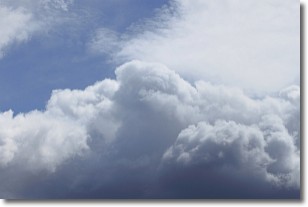Weather Alert in Wisconsin
Air Quality Alert issued August 1 at 10:15AM CDT by NWS Green Bay WI
AREAS AFFECTED: Vilas; Oneida; Forest; Florence; Northern Marinette County; Lincoln; Langlade; Menominee; Northern Oconto County; Door; Marathon; Shawano; Wood; Portage; Waupaca; Outagamie; Brown; Kewaunee; Waushara; Winnebago; Calumet; Manitowoc; Southern Marinette County; Southern Oconto County
DESCRIPTION: The Wisconsin Department of Natural Resources has issued an Air Quality Advisory for the following counties: Brown, Calumet, Door, Florence, Forest, Kewaunee, Langlade, Lincoln, Manitowoc, Marathon, Marinette, Menominee, Oconto, Oneida, Outagamie, Portage, Shawano, Vilas, Waupaca, Waushara, Winnebago, and Wood. WHAT...The PM2.5 AQI is expected to reach the Unhealthy for Sensitive Groups to Unhealthy level. WHERE...All of Wisconsin WHEN...Until noon Saturday, August 2 Precautionary/Preparedness Actions: Sensitive groups: Consider rescheduling or moving all activities inside. Go inside if you have symptoms. People with asthma: Follow your asthma action plan and keep quick-relief medicine handy. People with heart disease: Symptoms such as palpitations, shortness of breath, or unusual fatigue may indicate a serious problem. If you have any of these, contact your health care provider. Everyone else: Keep outdoor activities shorter and less intense. Go inside if you have symptoms. Additional Details: Canadian wildfire smoke will continue to impact Wisconsin`s surface air quality over the next several days. Conditions have improved since Thursday as a pocket of cleaner air has infiltrated the widespread blanket of dense smoke across eastern Wisconsin. However, a mix of Unhealthy for Sensitive Groups (USG; Orange) AQI and Unhealthy (Red) AQI is still expected today, with locations farther north more likely to see heavier smoke. Continued gradual improvement is currently anticipated heading into the weekend, but USG (Orange) AQI to Unhealthy (Red) AQI will remain possible. Conditions will continue to be reevaluated on a day-to-day basis, including updates to the forecast and any associated Air Quality Advisories. For more information on current air quality, please see: https://airquality.wi.gov
INSTRUCTION: N/A
Want more detail? Get the Complete 7 Day and Night Detailed Forecast!
Current U.S. National Radar--Current
The Current National Weather Radar is shown below with a UTC Time (subtract 5 hours from UTC to get Eastern Time).

National Weather Forecast--Current
The Current National Weather Forecast and National Weather Map are shown below.

National Weather Forecast for Tomorrow
Tomorrow National Weather Forecast and Tomorrow National Weather Map are show below.

North America Water Vapor (Moisture)
This map shows recent moisture content over North America. Bright and colored areas show high moisture (ie, clouds); brown indicates very little moisture present; black indicates no moisture.

Weather Topic: What are Nimbostratus Clouds?
Home - Education - Cloud Types - Nimbostratus Clouds
 Next Topic: Precipitation
Next Topic: Precipitation
A nimbostratus cloud is similar to a stratus cloud in its formless,
smooth appearance. However, a nimbostratus cloud is darker than a stratus cloud,
because it is thicker.
Unlike a stratus cloud, a nimbostratus cloud typically brings with it the threat
of moderate to heavy precipitation. In some cases, the precipitation may evaporate
before reaching the ground, a phenomenon known as virga.
Next Topic: Precipitation
Weather Topic: What is Rain?
Home - Education - Precipitation - Rain
 Next Topic: Shelf Clouds
Next Topic: Shelf Clouds
Precipitation in the form of water droplets is called rain.
Rain generally has a tendency to fall with less intensity over a greater period
of time, and when rainfall is more severe it is usually less sustained.
Rain is the most common form of precipitation and happens with greater frequency
depending on the season and regional influences. Cities have been shown to have
an observable effect on rainfall, due to an effect called the urban heat island.
Compared to upwind, monthly rainfall between twenty and forty miles downwind of
cities is 30% greater.
Next Topic: Shelf Clouds
Current conditions powered by WeatherAPI.com




